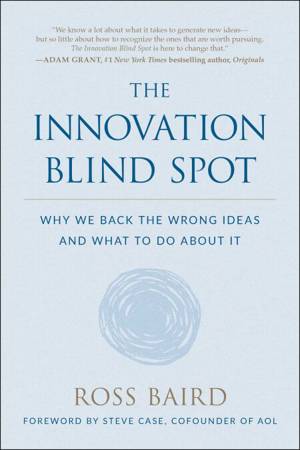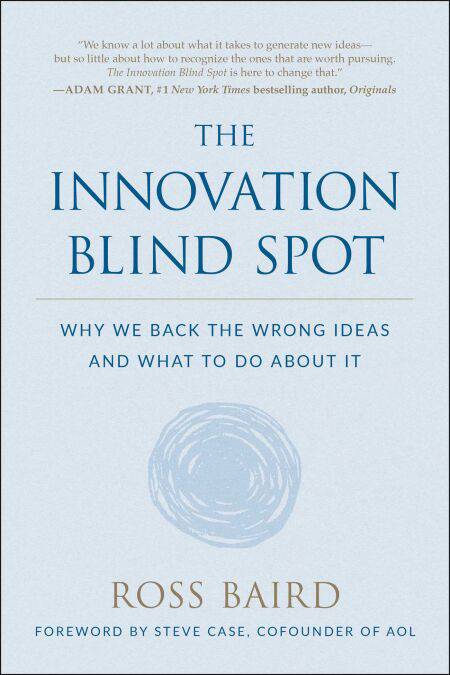
- Afhalen na 1 uur in een winkel met voorraad
- Gratis thuislevering in België vanaf € 30
- Ruim aanbod met 7 miljoen producten
- Afhalen na 1 uur in een winkel met voorraad
- Gratis thuislevering in België vanaf € 30
- Ruim aanbod met 7 miljoen producten
Zoeken
€ 11,17
+ 11 punten
Omschrijving
Our innovation economy is broken. But there's good news: The ideas that will solve our problems are hiding in plain sight.
While big companies in the American economy have never been more successful, entrepreneurial activity is near a 30-year low. More businesses are dying than starting every day. Investors continue to dump billions of dollars into photo-sharing apps and food-delivery services, solving problems for only a wealthy sliver of the world's population, while challenges in health, food security, and education grow more serious.
In The Innovation Blind Spot, entrepreneur and venture capitalist Ross Baird argues that the innovations that truly matter don't see the light of day—for reasons entirely of our own making. A handful of people in a handful of cities are deciding, behind closed doors, which entrepreneurs get a shot to succeed. And most investors are what Baird calls "two-pocket thinkers"—artificially separating their charitable work from their day job of making a profit.
The resulting system creates rising income inequality, stifled entrepreneurial ambition, social distrust, and political uncertainty. Our innovation problem makes all our other problems harder to solve. In this book, Baird demonstrates how and where to find better ideas by lifting up people, places, and industries that are often overlooked. What's more, Baird ultimately outlines how to create long-term success through "one-pocket thinking"—eliminating the blind spot that separates "what we do for a living" and "what we really care about."
While big companies in the American economy have never been more successful, entrepreneurial activity is near a 30-year low. More businesses are dying than starting every day. Investors continue to dump billions of dollars into photo-sharing apps and food-delivery services, solving problems for only a wealthy sliver of the world's population, while challenges in health, food security, and education grow more serious.
In The Innovation Blind Spot, entrepreneur and venture capitalist Ross Baird argues that the innovations that truly matter don't see the light of day—for reasons entirely of our own making. A handful of people in a handful of cities are deciding, behind closed doors, which entrepreneurs get a shot to succeed. And most investors are what Baird calls "two-pocket thinkers"—artificially separating their charitable work from their day job of making a profit.
The resulting system creates rising income inequality, stifled entrepreneurial ambition, social distrust, and political uncertainty. Our innovation problem makes all our other problems harder to solve. In this book, Baird demonstrates how and where to find better ideas by lifting up people, places, and industries that are often overlooked. What's more, Baird ultimately outlines how to create long-term success through "one-pocket thinking"—eliminating the blind spot that separates "what we do for a living" and "what we really care about."
Specificaties
Betrokkenen
- Auteur(s):
- Uitgeverij:
Inhoud
- Aantal bladzijden:
- 240
- Taal:
- Engels
- Reeks:
Eigenschappen
- Productcode (EAN):
- 9781944648626
- Verschijningsdatum:
- 11/09/2017
- Uitvoering:
- E-book
- Beveiligd met:
- Adobe DRM
- Formaat:
- ePub

Alleen bij Standaard Boekhandel
+ 11 punten op je klantenkaart van Standaard Boekhandel
Beoordelingen
We publiceren alleen reviews die voldoen aan de voorwaarden voor reviews. Bekijk onze voorwaarden voor reviews.











